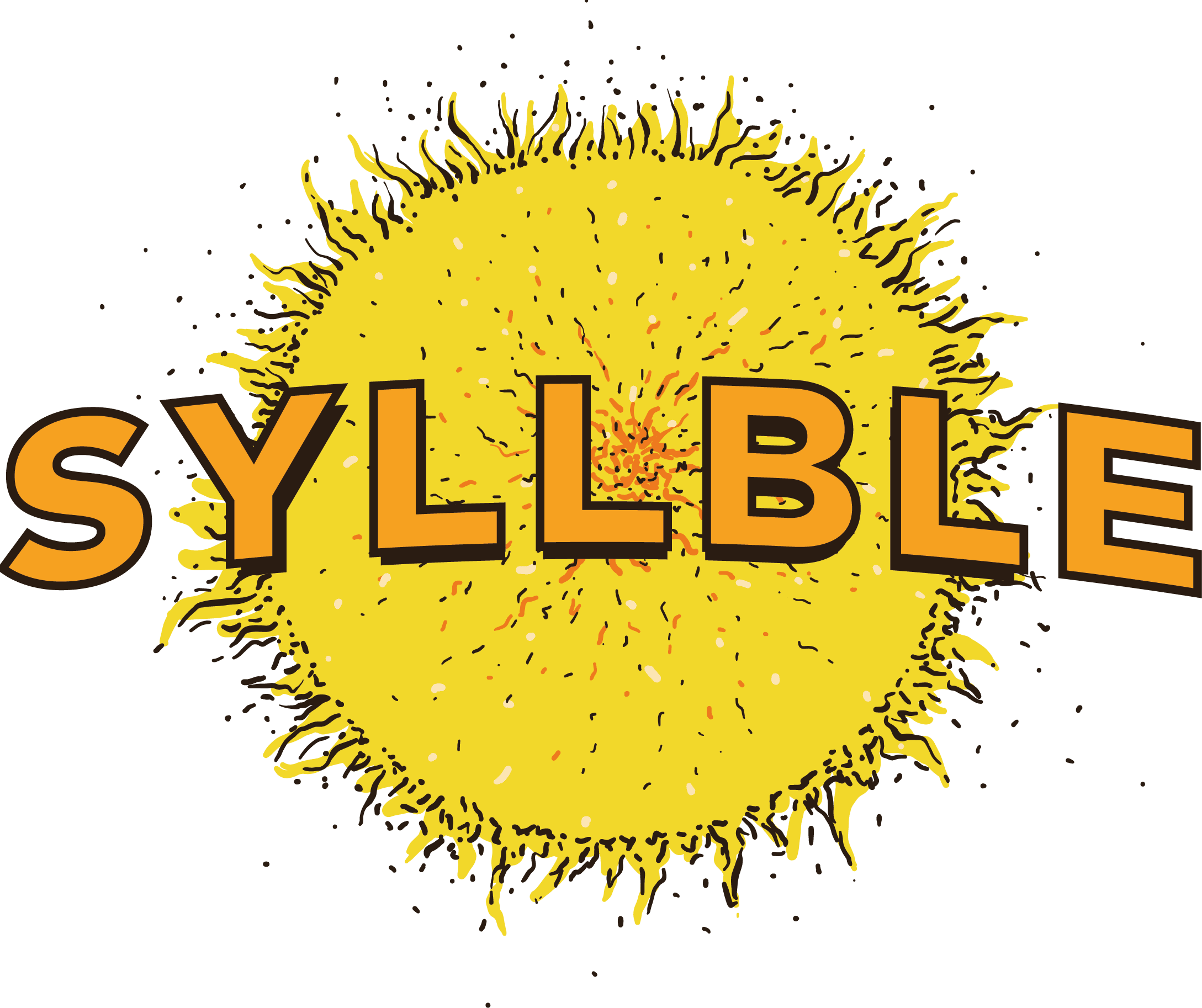This is blog one in a three-part series on Syllble, a science fiction and fantasy production house and publisher. This blog tells the story of how Syllble came to be. Part two will examine the unique aspects of Syllble that make it magical and innovative, along with its main aim.

He was 12 years removed from Haiti, and yet it was in his return to the western nation on the island of Hispaniola in the Carribean in January 2016 that Fabrice Guerrier sealed his destiny as a writer and entrepreneur. His trip set into motion a convergence of transformative ideas and experiences that has driven him ever since to use art as the main framework for the social change he seeks, and it inspired and motivated him to launch Syllble, a science fiction and fantasy production house, in 2018.
“There’s so many different layers of it – being back on the island, connecting to the ancestral land, the rain, the trees, the night sky,” Mr. Guerrier said of his return to Haiti. “It was amazing. It was life-changing, really, really life-changing.”
Having recently completed a master’s degree in conflict transformation, Mr. Guerrier returned to Haiti in early 2016 for the first time since he immigrated with his family to the United States at age 13. He went back as a fellow with PEN America to support and manage the PEN Haiti Center’s community-center space for six months in Thomassin Petion-Ville, a suburb east of the capital Port-au-Prince on the northern hills of the La Selle Mountains.
It was there that the convergence of transformative ideas and experiences began manifesting for Mr. Guerrier. He realized what the arts and literature meant for Haitians, especially as a tool to push back against colonialism and oppression. He also began writing fiction and reflected on the connections between his past experiences and current reality.
“The idea of Syllble rose directly from my trip and going to Haiti,” Mr. Guerrier said. “I think it was a grand synthesis of ideas because in college I created a think tank called The LEEHG Institute, and it was guided by the notion that every single person has a genius, and that collaboration can harness and engage that genius in a fundamental way.
“With The LEEHG Institute, we organized a collaborative group of students from different academic backgrounds to participate in simulations, projects, and writing. So, it was a precursor to Syllble in those and many other ways.”
Another element of Mr. Guerrier’s synthesis of ideas was Coming to the Table, a racial reconciliation organization founded by Black slave descendants and the white activists linked to them. He was the youngest national president of the organization and said that experience showed him the healing power of storytelling.
The influence of those experiences and the uplifting inspiration that Mr. Guerrier experienced during his return trip to Haiti was met in short order with a different feeling, one of determination, as settling in Washington, D.C., in December 2016 brought the political landscape of the United States at the time into clear view.
“It was like a meteoric explosion in terms of my belief in the government as a sort of framework for change,” he said.
He started drafting two novels during his stay in Haiti but said he encountered a lot of pain points in resuming them once he was back in the United States, including finding motivation, maintaining accountability, and building a community.
The tipping point came in the fall of 2017, when the combination of all his recent experiences and realizations led Mr. Guerrier to act. He sent out a survey to 50 people in his creative community to see whether others also were experiencing some of the same pain points, and he was surprised to learn that a lot of them also faced similar difficulties with creative writing, which galvanized him further.
With the survey results in mind, he hypothesized that collaboration could be the solution to addressing these creative writing issues because, he thought, with two or more people, it would be easier to be more accountable, inspired, and engaged. During his preliminary research, as he was asking himself why the classical paradigm of writing alone persisted as the status quo for writers, especially in the digital age, he was starting to believe that writers could go further together. He was determined to find out.
“I needed to test the hypothesis that collaboration could be the solution because, for me, I see a lot of entrepreneurship as a test,” Mr. Guerrier said. “I’m like a scientist and I’m trying to test a hypothesis, and I was like, ‘Could collaboration actually meet and solve and engage all these pain points?’”
As any thorough scientist would, he started running experiments to see what his hypothesis would yield, and his first experiment involved gathering three writers in his living room in the Washington, D.C., neighborhood of Dupont Circle in the fall of 2017.
Mr. Guerrier said that during that first meetup, he gave the three writers, whom he knew but who did not know one another, details of the process he envisioned for the collaboration and asked them to write a short story together. He said that one writer created an outline, another person wrote the story, and the third edited it, with the writers interchanging their roles throughout the process.
“What I saw was extremely magical because I saw people share storytelling,” Mr. Guerrier said. “I saw their history, their passion, their vision. I saw three strangers become friends. I saw theater, philosophy, and personal storytelling.”
Their three sets of ideas merged and turned into the short story The Cell, which they completed two weeks after their first encounter. Mr. Guerrier said it was the first story produced at Syllble.
Inspired by the results from the first meetup, he repeated the process six additional times in close succession with other writers to continue testing his experiment of engaging aspiring novelists and creating a space for them to write short stories collaboratively.
The first book that Syllble published came shortly thereafter and included three short stories that writers had produced collaboratively called, Syllble: Collection of Collaboratively Written Short Stories 2017.
“That began the journey of Syllble, where we would host numerous meetups in-person in D.C.,” Mr. Guerrier said. “I was lonely writing by myself, not understanding the big publishing industry and how wide it is, and also the anxiety of writing, of being an artist, and not having a community.
“I think a lot of other writers in my creative community also wanted to connect and wanted to meet. And in testing out the model, I realized that more and more that there was a need for Syllble.”
As the promising results compounded and continued to show promise, Mr. Guerrier knew he needed a name for his new arts organization that would match its vision and direction. His perspective on the importance of syllables in language made the choice easy, but he added a twist by taking the singular form of the word minus the A.
“I was trying to figure out a name that would engage connectivity and collaboration,” he said. “I think syllables are the appendages that connect language itself.”
Like syllables working to bind language, Mr. Guerrier’s initial work in forming Syllble aimed to connect writers to facilitate creative collaboration. And it was the combination of Mr. Guerrier’s ideas and lived experience, along with his determination to act on them after reconnecting with his birthplace and heritage, that laid the foundation for an organization that brings creatives together to collaborate.
“I think I wanted to take action in my own hands,” Mr. Guerrier said, reflecting on his journey to creating Syllble. “And in searching for everything, I realized that I needed to align my vision as a storyteller, as a writer, and that I also needed to align my values and vision for social and societal change. And I realized that meaning and stories are so fundamental to how we create and how we navigate in the world.”
This is blog one in a three-part series on Syllble, a science fiction and fantasy production house and publisher. This blog tells the story of how Syllble came to be. Part two will examine the unique aspects of Syllble that make it magical and innovative, along with its main aim. Drew Sullivan wrote this three-part series after interviewing writers and members of the Syllble community.
Read Blog 2 “A Different Pathway“
Read Blog 3 “Syllble: A Creative Moonshot“

